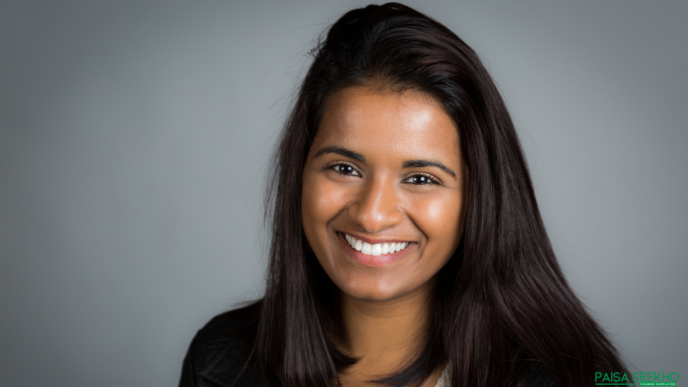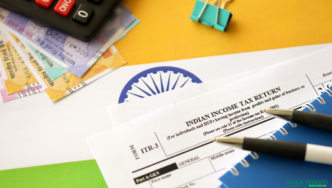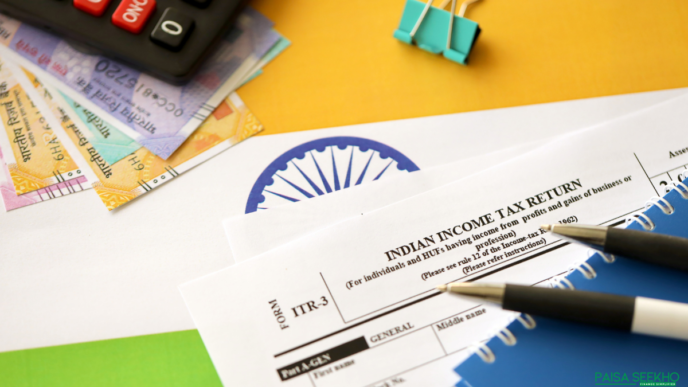Taking care of a loved one with a disability comes with many challenges, both emotional and financial. In India, the government recognises the importance of supporting families in these situations. That’s why Section 80DD of the Income Tax Act is here to help. This section allows taxpayers to claim deductions on the expenses they incur for the medical treatment, training, and rehabilitation of a dependent with a disability. It’s a way for the government to help ease the financial burden on families who work tirelessly to provide the best care for their loved ones.
If you’ve ever wondered how you can save on taxes while taking care of a family member with special needs, you’re in the right place. In this blog, we will break down Section 80DD in simple terms so you can understand how to make the most of the tax benefits available to you.
What is Section 80DD of the Income Tax Act?
Section 80DD is a provision under the Income Tax Act of India that offers tax deductions to individuals or Hindu Undivided Families (HUFs) for expenses incurred in the medical treatment, training, and rehabilitation of a dependent with a disability. It also includes deductions for premiums paid towards specific insurance policies meant for the care of such dependents.
The deduction is intended to provide financial relief to families who bear the cost of taking care of dependents with disabilities, allowing them to focus on providing the best possible care without worrying as much about the financial implications. This benefit is available to anyone who has a dependent family member with a disability, such as a spouse, child, parent, or sibling.
Eligibility for Claiming Deduction under Section 80DD
To be eligible for a deduction under Section 80DD, the taxpayer must meet the following criteria:
- Individual or HUF: The deduction is available to individual taxpayers or Hindu Undivided Families (HUFs).
- Dependent with a Disability: The dependent must be a family member with a disability. This could be a spouse, child, parent, or sibling in the case of individual taxpayers, or any member of the HUF.
- Expenses Incurred: The deduction can be claimed for expenses incurred on the medical treatment (including nursing), training, and rehabilitation of the dependent with a disability. It can also be claimed for premiums paid towards an insurance policy designed to take care of the dependent with a disability.
- Disability Certificate: A medical certificate from a government hospital is required as proof of the disability of the dependent.
What Disabilities are Covered under Section 80DD?
Section 80DD covers a wide range of disabilities, as defined under the Persons with Disabilities (Equal Opportunities, Protection of Rights and Full Participation) Act, 1995. The disabilities covered include:
- Blindness
- Low Vision
- Leprosy-cured
- Hearing Impairment
- Locomotor Disability
- Mental Retardation
- Mental Illness
- Autism
- Cerebral Palsy
- Multiple Disabilities
The disability must be at least 40% as certified by a medical authority. In cases where the disability is 80% or more, it is considered a severe disability, and a higher deduction is allowed under Section 80DD.
What is the Maximum Amount of Deduction under Section 80DD?
The maximum deduction available under Section 80DD depends on the severity of the disability of the dependent:
- For Disability (40% or more but less than 80%): The maximum deduction available is ₹75,000.
- For Severe Disability (80% or more): The maximum deduction available is ₹1,25,000.
These limits are fixed, irrespective of the actual expenses incurred by the taxpayer for the treatment or care of the dependent.
Section 80DD vs Section 80U – What’s the Difference?
The following table highlights the key differences between Section 80DD and Section 80U of the Income Tax Act:
| Feature | Section 80DD | Section 80U |
| Applicability | For individuals or HUFs supporting a dependent with a disability | For individuals with a disability (self-disability) |
| Deduction Amount | ₹75,000 for disability (40% or more) – ₹1,25,000 for severe disability (80% or more) | ₹75,000 for disability (40% or more) – ₹1,25,000 for severe disability (80% or more) |
| Who can claim | Family members (spouse, child, parent, sibling) or any member of HUF | The individual with a disability |
| Type of Expenses Covered | Medical treatment, nursing, rehabilitation, insurance premiums | No specific requirement for expenses incurred |
| Documentation Required | Medical certificate from a government hospital | Medical certificate from a government hospital |
Both sections provide financial relief, but Section 80DD is meant for caregivers, while Section 80U is meant for individuals with disabilities themselves.
Documents Needed for a Section 80DD Claim
To claim a deduction under Section 80DD, you will need the following documents:
- Medical Certificate: A medical certificate issued by a government hospital, certifying the disability of the dependent. The certificate must specify the nature and extent of the disability.
- Form 10-IA: If the dependent has autism, cerebral palsy, or multiple disabilities, Form 10-IA must be filled out and submitted.
- Self-Declaration Certificate: A self-declaration certificate detailing the expenses incurred for the medical treatment (including nursing), training, and rehabilitation of the dependent with a disability. Note that actual bills and receipts are not required to be submitted but should be kept for records.
- Insurance Policy Documents: If the deduction is claimed for premiums paid towards an insurance policy, the policy documents must be maintained as proof.
LEARN MORE: Want to find additional ways to save on taxes? Check out the deductions under Section 80C.
Conclusion
Section 80DD is an important provision that offers financial relief to families caring for dependents with disabilities. By providing tax deductions for medical treatment, rehabilitation, and insurance premiums, it helps ease the financial burden on caregivers. Understanding the eligibility criteria, required documentation, and the maximum deduction limits can help you make the most of this benefit. If you are supporting a loved one with a disability, be sure to take advantage of the deductions available under Section 80DD to reduce your tax liability and focus on providing the best care possible.
FAQs
- Who can claim deductions under Section 80DD?
Individual taxpayers and Hindu Undivided Families (HUFs) can claim deductions under Section 80DD for expenses incurred in the care of a dependent with a disability.
- What is the maximum deduction available under Section 80DD?
The maximum deduction is ₹75,000 for a disability of 40% or more and ₹1,25,000 for a severe disability of 80% or more.
- What types of disabilities are covered under Section 80DD?
Disabilities such as blindness, low vision, hearing impairment, locomotor disability, mental retardation, autism, cerebral palsy, and multiple disabilities are covered.
- Is a medical certificate required to claim the deduction?
Yes, a medical certificate from a government hospital is required as proof of the dependent’s disability.
- Can I claim a deduction for insurance premiums under Section 80DD?
Yes, you can claim a deduction for premiums paid towards an insurance policy designed for the care of the dependent with a disability.
- What is the difference between Section 80DD and Section 80U?
Section 80DD is for caregivers of dependents with disabilities, while Section 80U is for individuals with disabilities themselves.
- Do I need to submit bills and receipts for claiming the deduction?
No, bills and receipts are not required to be submitted. However, a self-declaration certificate detailing the expenses must be provided.
- Can both parents claim the deduction if they are supporting a disabled child?
No, the deduction under Section 80DD can only be claimed by one parent or guardian.
- Is the deduction available if the dependent is earning an income?
The deduction is available as long as the dependent’s income does not exceed the taxable limit. If the dependent’s income exceeds the exemption limit, they are not considered dependent.
- Can I claim both Section 80DD and Section 80D for medical expenses?
Yes, you can claim deductions under both sections if you meet the eligibility criteria for each. Section 80DD is for the care of a dependent with a disability, while Section 80D is for health insurance premiums.













